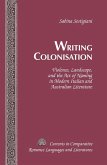'Beowulf', one of the earliest poems in the English language, recounts a tale of heroism played out against the backdrop of Scandinavia in the 5th to 6th centuries AD. And yet, this Old English verse narrative set in Scandinavia is - a little surprisingly, perhaps - populated with names of German descent.
This insight into the personal names of 'Beowulf' acts the starting point for Philip A. Shaw's innovative and nuanced study. As Shaw reveals, the origins of these personal names provide important evidence for the origins of Beowulf as it enables us to situate the poem fully in its continental contexts. As such, this book is not only a much-needed reassessment of 'Beowulf''s beginnings, but also sheds new light on the links between 'Beowulf' and other continental narrative traditions, such as the Scandinavian sagas and Continental German heroics. In doing so, Names and Naming in 'Beowulf' takes readers beyond the continuing debate over the dating of the poem and provides a compelling new model for the poem's origins.
This insight into the personal names of 'Beowulf' acts the starting point for Philip A. Shaw's innovative and nuanced study. As Shaw reveals, the origins of these personal names provide important evidence for the origins of Beowulf as it enables us to situate the poem fully in its continental contexts. As such, this book is not only a much-needed reassessment of 'Beowulf''s beginnings, but also sheds new light on the links between 'Beowulf' and other continental narrative traditions, such as the Scandinavian sagas and Continental German heroics. In doing so, Names and Naming in 'Beowulf' takes readers beyond the continuing debate over the dating of the poem and provides a compelling new model for the poem's origins.









